So, you want to buy a new vehicle?
Whether you’re in the market for a sleek sports car, a rugged pick-up truck, or a spacious SUV that will have the most dedicated weekend sports dad jealous, the options are endless. But before you start signing on the dotted line, or even head online or to the dealership, there are a few things to consider: should you buy or lease? New or used? And is it all about the sticker price or should you just focus on the monthly payment? Needless to say, there’s a lot to consider before making your purchase and we hope this guide helps you make that decision a little easier.
Buy vs Lease
One of the first things to consider when buying a new car is whether to buy or lease. Buying a car means that you own it outright and can do with it as you please. There are no mileage limits or penalties for wear and tear, so you can drive as much as you want, customize it, and sell it or trade it in when you’re ready for a new one. However, buying also means that you’re responsible for all repairs and maintenance, and the value of the car will, more often than not, depreciate over time and make it difficult to “build equity” in your purchase. If you have a long commute for work or just enjoy the total freedom of having your own vehicle, buying may be right for you.
Leasing a car, on the other hand, means that you’re renting the car for a set period of time, typically a shorter amount of time than financing. A lease payment is typically lower than an auto loan payment on the same car and you won’t necessarily have to worry about the car’s value depreciating since the dealer gets it back after your lease period ends. However, you will have annual mileage restrictions and will have to pay extra, often a lot extra, if you go over those restrictions. Additionally, most dealerships require you to carry additional or even the maximum insurance coverage which could increase your total, “all-in” payment (Lease + Insurance). Leasing is a great option for people that don’t drive as frequently or don’t have very far to go. Many people in metropolitan areas where other forms of transportation are readily available such as trains, subways, taxis, etc. end up leasing since they need to/like to have a vehicle but don’t use it every day. Luxury vehicles are often leased because of a combination of high sticker price, relatively lower resale value, and a recurring desire to trade up to a new year model.
There are pros and cons to both options, and ultimately the decision between buying vs leasing really depends on you and your lifestyle.
New vs Used
If you decide to go forward with purchasing your next vehicle, the next thing to consider is whether to buy new or used. Buying new means that you’ll often have all the latest technology and features that a particular make and model offers and you’ll be the first person to drive the car – true new car smell is a hard thing to pass up. New cars also typically come with standard warranties that can save you money on repairs if something goes wrong – typically during your first year or so of ownership or up to a certain number of miles, whichever comes first. In typical times, buying new also means that you’ll pay a higher price upfront, typically 10-15%, as high as 20% more compared to a used vehicle, although that is not always the case: in 2021 and 2022 used car prices matched or exceeded comparable new vehicles for some models, body styles, and parts of the country.
While buying used does typically mean that you’ll save money upfront, you also must be more active about ensuring the quality of your vehicle. Most credible dealerships these days will offer “certified-used” cars. A certified-used car (also known as a “certified pre-owned” or CPO car) is a used car that has undergone a thorough inspection and reconditioning process by the manufacturer or a dealership and has been certified to meet certain standards set by the manufacturer. These cars typically come with a warranty, roadside assistance, and other benefits that make them equally as attractive as new for many buyers.
The specific requirements for a car to be considered “certified-used” can vary by manufacturer, but generally, a car must meet certain criteria such as within a certain age limit, low mileage, and passing a thorough inspection process by the manufacturer. Because of all of this, buying certified can provide peace of mind for the buyer. However, these cars also tend to be more expensive than non-certified used cars.
Non-certified used cars typically warrant some active due diligence to be sure that you know what you are getting and be confident you’re getting a fair price for the condition. A non-certified used vehicle typically has not undergone a full inspection or reconditioning process and so you, and possibly the dealer, may not have a complete understanding of the vehicle’s potential issues. Similarly, non-certified used vehicles usually do not come with a warranty or any other benefits like roadside assistance, so you could be responsible for any repairs or maintenance as soon as it leaves the lot. Best practice is to have a trusted mechanic unrelated to the dealership make a thorough inspection of the vehicle. Additionally, a car history report from reputable services such as Carfax and AutoCheck should be purchased or obtained from the dealership. At time of purchase, may dealerships will offer a limited 3rd party warranty for an additional fee. It is important to keep in mind that the benefits and risks of buying a non-certified used car will vary depending on the specific vehicle, its condition, and the seller. As with the buy/lease question, there are pros and cons to buying new vs used.
Sticker Price vs Monthly Payment
By this point, you should know what type of vehicle you are looking for, whether you want to buy or lease it, and if you’re buying, whether you’re looking for new, certified-used, or non-certified used. The last thing to consider when it comes to buying a new car is the purchase price and the monthly payment. One of the first things to be aware of is to not fall into the salesman’s trap of answering the “what monthly payment are you looking for?” question early on when walking around the lot. Dealerships can move numbers around and create virtually any monthly payment they want by stretching the financing term, charging higher interest, etc. Bottom line, talk sticker price first and then talk monthly payment.
Having said that, a low monthly payment can make it more affordable from a monthly cashflow perspective for you to purchase the car, but if the lower payment is primarily a result of a longer loan term, it also means that you’ll end up paying more in interest over time. On the other hand, a low sticker price can help you save money upfront and over the course of your loan, but it could also mean that you’ll have to make sacrifices in terms of the car’s features or overall quality. It’s important to find a balance between the two and consider what is most important to you. For example, if you are on a tight budget and looking to save money, a low sticker price may be more important to you because it means a lower fixed (known) cost of ownership – but understand that it might also come with a higher incidence of unknown costs like repair bills that aren’t covered by any kind of warranty. However, if you want to have the latest technology and features in your car, you may be willing to pay a higher monthly payment. An additional consideration is the total cost of ownership, including taxes, insurance, and maintenance, when making your decision. It’s important to compare the total cost of ownership of different cars you are interested in to make a well-informed decision. Well-respected websites such as Kelley Blue Book and Edmunds have long term cost-of-ownership studies for almost all car makes and models.
In summary, it’s not just about the lowest monthly payment or the lowest sticker price when buying a car. It’s important to consider both, as well as your budget, lifestyle, and the total cost of ownership. It’s also important to shop around for the best deal and negotiate with the dealer.
In the end, buying a new car is a personal decision, and there’s no one right answer. It’s all about what works best for your budget and lifestyle. Take your time, do your research, and don’t be afraid to negotiate. Happy car buying!
The opinions voiced in this material are for general information only and are not intended to provide specific advice or recommendations for any individual. All performance referenced is historical and is no guarantee of future results. All indices are unmanaged and may not be invested into directly.







